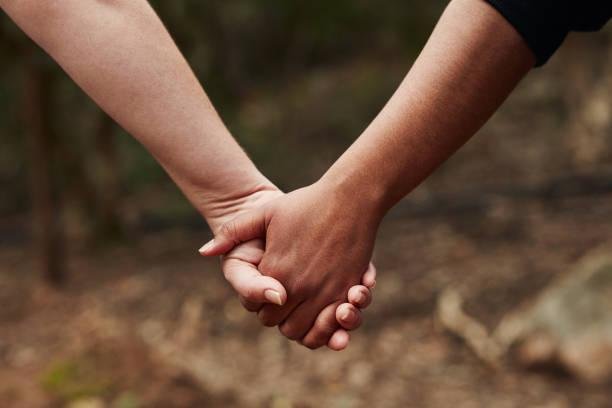Despite rising representation and acceptance of LGBTQ+ communities in the UK, many individuals still feel vulnerable expressing affection in public due to ongoing challenges and increasing hate crimes.
In recent times, there has been a noticeable increase in the visibility of LGBTQ+ communities across various facets of public life in the UK. Representation in parliament has climbed, with 69 of the 650 MPs openly identifying as part of the LGBTQ+ spectrum. Media and cultural spheres have also seen an uptick in LGBTQ+ presence, from television and film to fashion and music industries. This seemingly reflects growing acceptance, embodying the first half of the popular Pride slogan, “we’re queer, we’re here.”
Despite these advancements, a significant number of LGBTQ+ individuals still navigate public spaces with caution. Research conducted by Stonewall, a prominent LGBTQ+ rights organisation, reveals that only 44% of LGBTQ+ couples in the UK feel secure when holding hands in public. The act of holding hands serves as a simple yet profound measure of perceived social tolerance.
While LGBTQ+ couples might feel comfortable expressing affection in areas considered safe havens—such as Hackney, Soho, or Margate, or while on holiday in accepting European cities—they often remain vigilant, choosing moments when observers are not present. This cautious behaviour underscores the ongoing challenges faced by the community, contrasting with heterosexual couples whose displays of affection in public are largely met with indifference or acceptance.
However, the fear of reprisal for public displays of affection is not unfounded. There has been a notable increase in hate crimes against LGBTQ+ individuals, particularly targeting transgender people. The reluctance to report such offenses to authorities, due to historical homophobic tendencies within police forces, compounds the issue. Experiences of public harassment predominantly from men amplify the dual discrimination faced by LGBTQ+ individuals, who must also contend with misogyny.
The UK government has pledged to significantly reduce violence against women and girls over the next decade. These efforts—focused on retraining law enforcement, deterring male violence, and improving victim support—could indirectly benefit LGBTQ+ communities and lay the groundwork for broader protective measures.
While the UK might not be the most perilous place for LGBTQ+ people, the experience of travelling abroad introduces varying degrees of risk. Instances like posing as “cousins” in Morocco to avoid negative societal reactions highlight the stark differences in acceptance and safety experienced across different cultural contexts. Conversely, events such as women’s festivals celebrating LGBTQ+ identities, like the one on Lesbos, provide liberating environments where individuals can fully express themselves without fear.
Ultimately, the aspiration for LGBTQ+ individuals is not extraordinary or outlandish displays of affection; rather, it is the desire for basic safety and belonging in public spaces, akin to their heterosexual counterparts. As public conversations and policies evolve, understanding the full spectrum of LGBTQ+ experiences remains crucial for fostering an environment where all individuals can comfortably live their truths.
Source: Noah Wire Services





